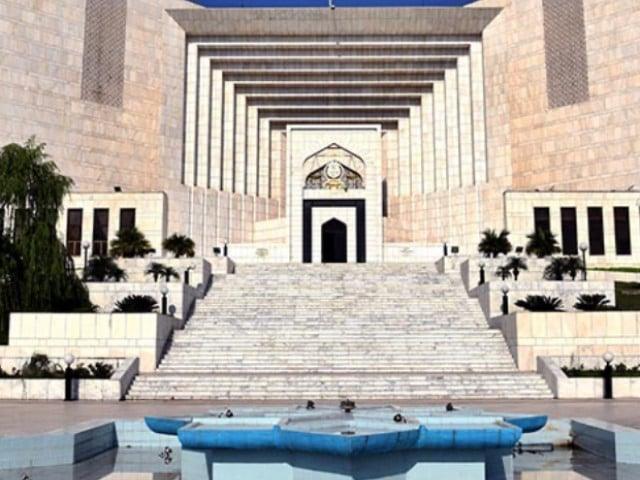Justice Hasan Azhar Rizvi of the Supreme Court said that the entry of individuals into the Corps Commander House in Lahore on May 9, 2023, was undeniably a “breach of security”.
In his remarks on Tuesday, Justice Rizvi asked: “Did the people reach the Corps Commander’s house on May 9? The entry of people into the Corps Commander’s house is undoubtedly a breach of security.”
The remarks were made as the court’s Constitutional Court, headed by Justice Aminuddin Khan, heard appeals within the courts challenging the trial of civilians in military courts following the May 9 unrest.
During the hearing, Justice Hassan Azhar Rizvi noted that the entry of people into the corps commander’s house on May 9 was a security breach. He questioned whether any military officer had been prosecuted for involvement in the May 9 events.
Defense Ministry counsel Khawaja Haris began presenting his arguments and stated that the persons prosecuted in the FB Ali case were retired.
Judge Musarrat Hilali observed: “If a soldier has a dispute with a civilian in a cantonment, where will the matter go?” Defense counsel responded that disputes were different and the issue of military trials was overstated.
Defense Ministry counsel further argued that even in peacetime, civilians who interfere in military affairs will face trial in military courts. Justice Hassan Azhar Rizvi asked: “There must be a mastermind behind it; who orchestrated the conspiracy?”
Khawaja Haris argued that the trial of the mastermind or conspirator would also take place in military courts and the trial of civilians had not started suddenly as the law had been in place since 1967.
Justice Hassan Azhar Rizvi responded: “Remember that the FB Ali case was from the Civilian Martial Law era, with Zulfikar Ali Bhutto as the Civilian Martial Law Administrator.”
Justice Hassan Azhar Rizvi raised an important question, asking the Defense Ministry’s lawyer: “Was there a trial for a military officer involved in the May 9 events? How did people manage to reach the Corps Commander’s house? Hadn’t anyone entered the Corps Commander’s House a security breach?”
The Ministry of Defense lawyer explained that the charges against the protesters were related to damage to property and no military officer had been charged in the May 9 incident.
Justice Hassan Azhar Rizvi further asked whether resistance had been put up when military installations were damaged on May 9. Defense counsel responded that complete restraint had been exercised to avoid loss of life.
Justice Jamal Khan Mandokhel asked, “If a soldier’s rifle is stolen, where will the case be filed?” The Ministry of Defense lawyer replied that the rifle was a soldier’s weapon of war.
Judge Musarrat Hilali asked: “If a civilian steals for financial gain, even if their intention is not to disarm the army, where will the trial be held?” The Ministry of Defense lawyer replied that the circumstances would be taken into account.
Judge Mohammad Ali Mazhar pointed out that the Official Secrets Act lists which crimes fall under the military court’s jurisdiction.
Judge Musarrat Hilali noted that during the events of May 9 and 10, some protesters were unaware of what was going on. The Ministry of Defense lawyer clarified that those unaware were not tried in military courts.
Subsequently, the Supreme Court adjourned the hearing of the military court case until the next day.
Yesterday, Justice Jamal Khan Mandokhail said several offenses are listed under the Army Act, but all apply only to military officers.
Justice Aminuddin urged Khawaja Haris to finish his arguments by Tuesday. He requested a brief explanation of which cases were transferred to military courts and why.
He added that any questions from the bench would be dealt with later.



